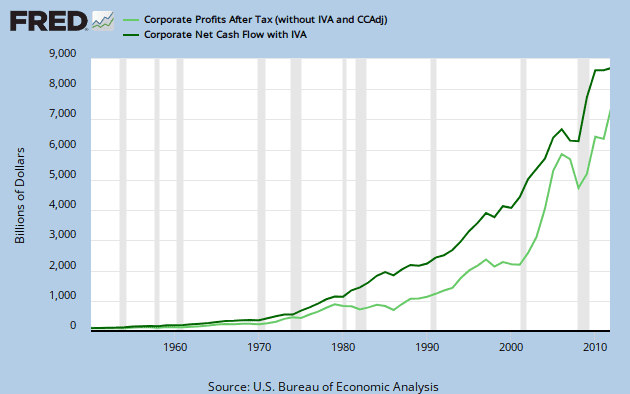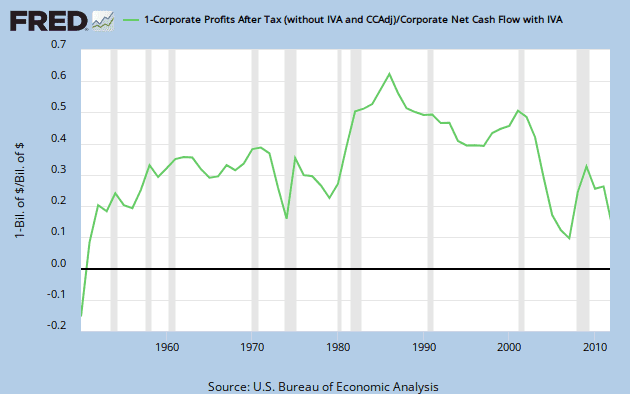...........................I doubt that your single flat-rate tax on profits could raise sufficient tax revenues.that why "profit Taxes" only Tax (net) profits, e.g. (Income - StandardDeduction) x T%, that deduction would eliminate all Taxes on "poor people" below the poverty line.......Im a proponent of alternatives to progressive tax rates that would grant some tax consideration to lower income families.
...........................
Widderkind, Im a proponent of alternatives to progressive tax rates that would grant some tax consideration to lower income families.
Its possible to tax net incomes or gross sales in manners that to some limited extents have considerations for the working poor while gradually decreasing those considerations as incomes increase.
Comparing a general income tax with no other than a per capita standard deduction or a general sales tax with considerations for lower income purchasers, the sales tax compliance expenses, and federal administration and enforcement expenses would all be simpler, of lesser expense and would be less intrusive than that of the income tax.
Respectfully, Supposn



